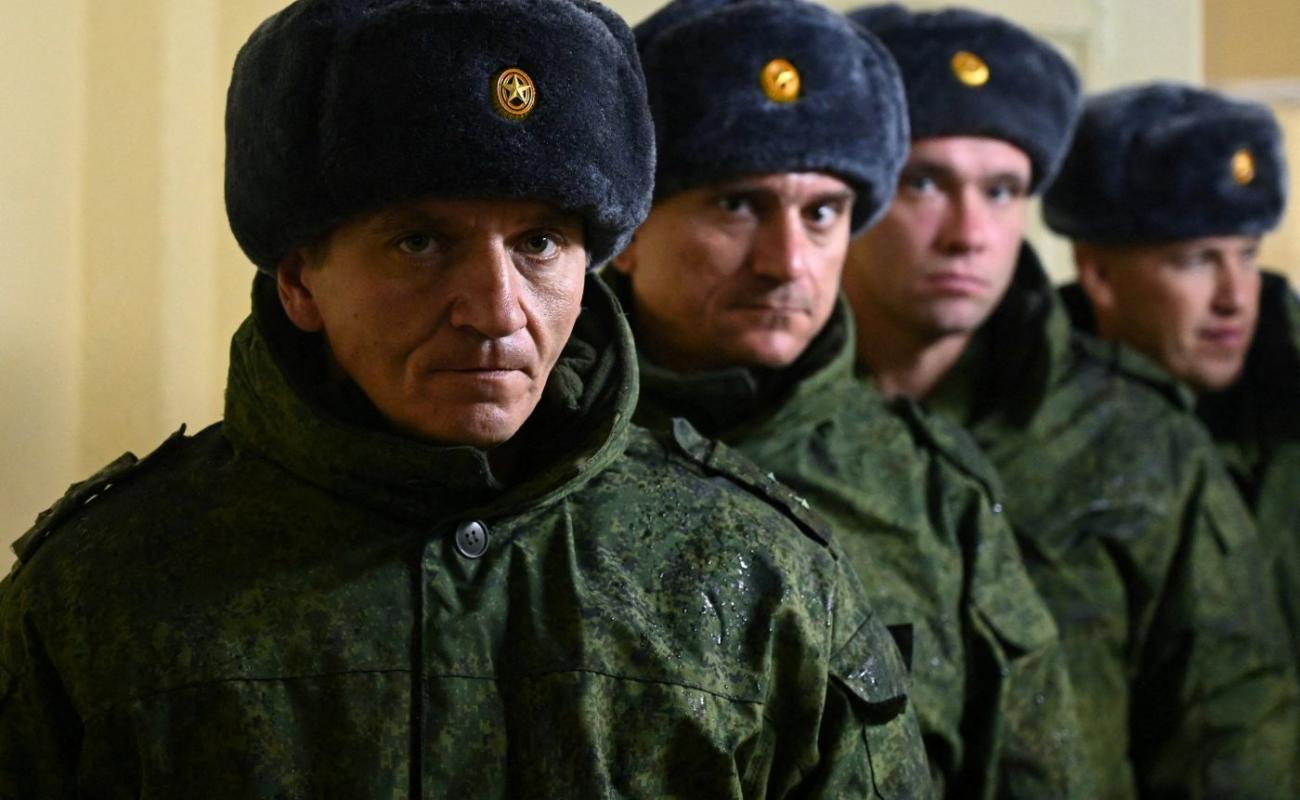Russian Discontent Bubbles Beneath the Surface

An average of 75% of respondents support the actions of the Russian army; in October, this number edged up slightly to 76% among those surveyed by Denis Volkov, director of the Levada Center, and political analyst Andrey Kolesnikov published in November.
And yet. Despite the seemingly high level of consolidation around the authorities and the military, there are signs of growing dissatisfaction among Russians but not yet manifested in open protests. The independent journalistic project “Important Stories” published a study on the most common grievances that Russians voice to Vladimir Putin.
It is crucial to underscore that complaints to the president are viewed by the majority of the Russian population as a last resort to seek justice when all other avenues have been exhausted, much as their ancestors formerly did with the tsar.
According to the data, the most pressing concern for Russians is the financial well-being of contract soldiers. The first letters to Putin on this topic appeared as early as April 2022, and by October 2023 the monthly volume of appeals on this issue had surged 25-fold. This suggests that the authorities’ strategy of “injecting” money to address the problem of the loss of Russian lives in the war is still effective. The so-called Putin majority is still willing to sacrifice the lives and health of their loved ones in return for sufficient compensation.
However, it appears that this mechanism is starting to falter. In late November, regional officials were instructed to suppress “at any cost” protests by the wives of mobilized soldiers demanding the return of their husbands from the front. Many seek to achieve this goal through “caring for the families of fighters”. However, given the shortage of funds at the local level, these expressions of care have become rather more modest.
For example, in Tuva, families of the mobilized are mainly given potatoes and firewood. In the Republic of Tyva, families of conscripts receive young cattle and coal, while in Yakutia, they get reindeer carcasses. In other places, families of the mobilized are supported with food packages and tea, and in the Tyumen region, they were given tickets to a circus performance scheduled for June.
Mobilization issues are the second-most complained about subject to Putin. The greatest number was registered in October 2022, just after the mass mobilization, with almost 13,000 letters sent to the president. In third place came complaints about contract service. Russians send over 1,000 complaints on this topic monthly, which reached a peak in September with 1,878 appeals.
In April, the primary theme of complaints to the president concerned the lack of military leave from active service. This declined in the fall, which sociologists attributed to growing anger among military families and a resort to other methods to resolve this grievance. Some wives had begun to participate in protests, something that the Kremlin is currently actively seeking to suppress.
In addition, Russians complain to the president about the lack of assistance in finding those missing in action and the treatment of the wounded, as well as expressing dissatisfaction with low salaries in the public sector, disruption in heating supplies, household problems, and inadequate pensions.
But while there may be dissatisfaction, there are few signs of open dissent. The fact that they write complaints to Putin demonstrates that many people see the government not as the cause of their problems but as a defender and protector.
In addition to a residual faith in the goodness of the powerful, a significant deterrent to participation in protest activities, as before, remains repression. Sociologists attribute the decline in the number of open protests against the war to this, while simultaneously noting the growth of the movement of discontent among relatives of the mobilized and an increase in the number of front-line desertions.
According to researchers, the current decrease in the number of criminal and administrative cases for anti-war beliefs is not due to a reduction in the level of repression, but rather the fear of consequences having “internalized new censorship rules.” Meanwhile, the level of repression remains high, something evident in the severity of sentences, systematic physical violence by law enforcement against regime opponents, and equally systematic alternative forms of extrajudicial pressure.
Another sign of the regime’s increasingly heavy-handed approach is the surge in treason cases, which have replaced less serious anti-war charges. According to data compiled by the publication Holod, from January to July, the FSB filed at least 82 cases related to treason and espionage, whereas, in the entire previous year, only 20 such cases were filed.
Russians who wish to stay out of trouble know they must express dissatisfaction only through “permissible” methods, or face action for their supposed disloyalty.
Kremlin trolls skillfully exploit this, bombarding the wives of the mobilized with comments suggesting that they are being “set up by Navalny’s supporters.”
So, do not expect organized protests by dissenters anytime soon. But do expect that the desperate, forced to look for other means of protest, or self-preservation, resort to more covert expressions of dissatisfaction, such as sabotage, desertion, and any other means to avoid becoming one of the 300,000 or more Russians killed and wounded in Ukraine.
Kseniya Kirillova is an analyst focused on Russian society, mentality, propaganda, and foreign policy. The author of numerous articles for the Jamestown Foundation, she has also written for the Atlantic Council, Stratfor, and others.
Europe’s Edge is CEPA’s online journal covering critical topics on the foreign policy docket across Europe and North America. All opinions are those of the author and do not necessarily represent the position or views of the institutions they represent or the Center for European Policy Analysis.
